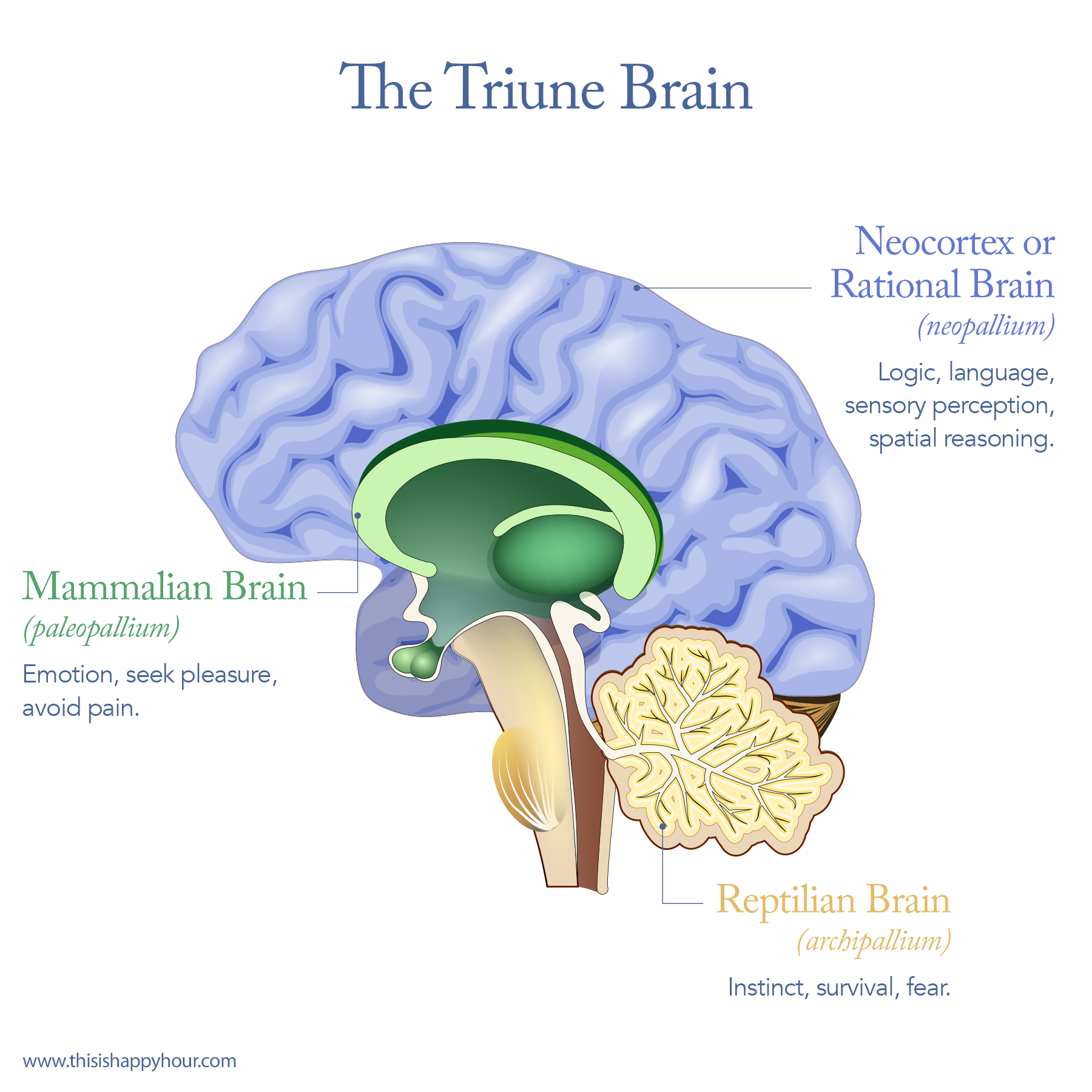May 6, 2020
Events | Mental Health | Wellness
We’re celebrating Mental Health Month with a group of incredible folks who are sharing their unique perspectives on Mental Health with us through a series of Instagram Live interviews and account takeovers. Each week, we’ll be sharing a recap of our favorite insights and tips from each of our experts, so without further ado let’s dive into week one!

Liz Devaughn
We kicked off Mental Health Month with a bang, and a really fun and informative interview with Licensed Professional Counselor, Elizabeth Devaughn of Woman Emerging. A little background: Liz grew up in an environment of trauma and addiction, which sparked her interest in mental health for herself, but also a passion for helping others to heal their emotional wounds.
On Fear
Our fear lives in our lower or reptile brain. This lower brain activity is meant as a survival mechanism, which is great if you’re being attacked by a bear. It becomes less beneficial when the fear and stress are less immediate and more constant (hello modern lifestyles!).
You can identify if you’re stuck in a pattern of fear if you are engaging in lower brain activities, like constantly scrolling through your phone, constantly watching the news, and focusing on things out of your control. If you find yourself having more arguments with loved ones than usual, that could be part of the fear cycle too. When you are getting into that lower brain, practice self soothing, such as breathwork.

Your trauma can empower you if you integrate it into your story and grow through it. Here are Liz’s top tips to empower yourself in times of fear:
Watch your language!
- The brain takes language as truth, so constant negative language or language that makes you feel guilt can actually wire your brain into a negative state. Pay attention to how often you say the words ‘can’t’ and ‘should’. Remove them from your vocabulary!
Empower yourself:
- Use “I” language. Start saying ‘I can’. Remember that “the brain that fires together wires together”. Wire your brain into believing that you are capable, and it will automatically start to recognize and maintain a sense of calm.
- Break your problems down and focus on the things that you can control (Hint: you can control you).
- Set small, digestible goals.
On Relationships
Liz has a great conflict cheat sheet – she even uses it as a guide when having difficult conversations with her husband!
- Ask permission. Be aware of others’ boundaries, they might not be able to have a big conversation right this minute. If they can’t talk now, schedule a time when they can give you their undivided attention.
- State your intention. Explain why this conversation is important to you, and express that you don’t want to lose them by having this conversation.
- Use eye contact.
- Speak from a place of ‘I’. “I feel really hurt when xyz happens” vs. “You did xyz.”
- Take breaks to self soothe through the senses – bringing you back to your upper brain: If either of you feel that you’re getting reactive, ask to take a time out. More is at risk when you’re having a difficult conversation with those closest to you, because there’s more to lose. That’s why it’s so important to take a break before the lower brain kicks in and starts an argument.
- Put your hands on your belly or chest and apply gentle, firm pressure while taking a few deep, intentional breaths.
- Smell essential oils, put your bare feet in the grass, hold a crystal or touchstone.
Check out Woman Emerging’s website for more.

Kim Breese
Next up we spoke to Healing Touch Certified Practitioner, Kim Breese. Kim’s journey started with a successful career in corporate America, that left her body and mind feeling unhappy. She began to take a more holistic approach to her health which led her to Healing Touch, and at once she knew she’d found her calling.
On Healing Touch and Energy Therapy
Energy therapy helps to regulate and move energy throughout the body. It can support anxiety, depression, physical pain, fatigue and spiritual connection. We’re so used to being told by everyone else what we should feel and what we need, and energy therapy allows us to connect with ourselves and tap into our own calling.
Healing Touch is a type of integrative medicine therapy where practitioners use gentle touch or a hovering of hands for a general relaxation and calming effect. The effect can be so relaxing, that practitioners are able to “go into” the body to release things we’ve been holding onto. Think of it like talk therapy for the body – as Kim says, “We hold our issues in our tissues.” The body can often speak louder than our thoughts can, and Healing Touch gives you the space to lean in to that, and peel back the layers.
On Grounding
Kim seems to radiate calm, so we asked her how she stays grounded:
- Listen to your body.
- Meditation. Don’t be intimidated by it! It’s okay if thoughts come up while meditating. Meditation also doesn’t have to be sitting still, if you get lost in something, that can also be meditative.
- Spend time in nature.
- Get enough rest. Take naps if you need them.
- Reach out to friends.
- Having a cup of tea. Or any act of taking care of myself that feels good to me at the time.
- Talk therapy. Sometimes you just need someone to ask the right questions to help you to tune in to yourself.
“Stop and ask yourself: What’s going to help you continue to feel good today? Part of the healing process can be really uncomfortable, but the other side is so worth it.”
On Spirituality
To Kim, spirituality can be found in anything that brings you joy. She believes that we are greater than our physical bodies, and that there is something larger than us that is stringing us together and along. Spirituality is the ability to rely on that feeling/notion when times are tough.
Kim is a spiritual guide, in that when she is working with someone, she will have an image in her mind, or may start a conversation or bring back a memory for the other person. The message she receives is simply a jumping off point. Much like other therapies, it’s up to you to then take that message and act on it, in order to tap into your deeper self.
She encourages you to lean in to trust and faith. There are things out there that support us in ways that we can’t understand.
“You are doing the work. You are going to have days that are really bad, but there’s something better coming along that you just have to trust.”
For more, visit Kim’s website.

Jessica Smith
A familiar face at The Happy Hour’s workshops and on our Instagram, Licensed Professional Counselor, Jessica Smith took over our stories to give us a peek into what self-care looks like for her while sheltering in place.
On Routine
In times of uncertainty and disruption, we need to create our own stability and consistency. To do this, Jessica suggests keeping a routine. If there’s something you want to make time for each day, write it on a Post It and stick it up somewhere you can see it. Jessica’s Post It says: “Daily Work: Motivation, Movement, Meditation.”
Other top tips for keeping a healthy routine:
- Start your day by fueling your body with a nourishing meal, just as though you were going out. Take the time to make you meals with love.
- Create a workspace that feels comfortable.
- Go for walks in familiar places.
On Motivation
Staying motivated isn’t always easy, that’s actually where a routine can come in handy, because habits tend to be stronger than motivation, especially on those days where you’re feeling particularly “meh”. That being said, creating a motivating environment can help lift your mood and get closer to your goals.
Jessica’s tips for staying motivated:
- Get an accountability buddy and do virtual workouts together. Keep each other motivated!
- Make time to catch up with your loved ones to keep your spirits high. FaceTiming with her niece is the highlight of Jessica’s day – and we’d venture a guess that it’s a highlight for her niece too!
- Fill your space with things that make you happy. This could be photographs of loved ones, candles, flowers – anything goes!
On Movement
Movement is key for both health and mood. Find a way to move every single day. This could look like walking, going for a run, yoga, or a combination of things. Find something you enjoy and you’re more likely to stick with it.
On Meditation
We’re all suffering from anxiety and uncertainty, so it’s key to find ways to control our thoughts, and bring us back into the right here, right now, where we’re safe, and know that everything is going to be okay.
Here are Jessica’s favorite tips to help calm your mind and bring yourself to the present:
- Create your own calm. Jessica’s favorite affirmation for meditation is “I am peaceful, protected and secure.”
- Practice gratitude. Ask yourself what you’re grateful for each day.
- Manage your thoughts by writing them down. Journaling is a great tool for gaining clarity.
- Let your mind escape into a book.
- Use scented candles, or essential oils to help ground you.
“Be still. Focus on what you can control. Know and believe that you are okay.”
For more about Jessica, visit her website.